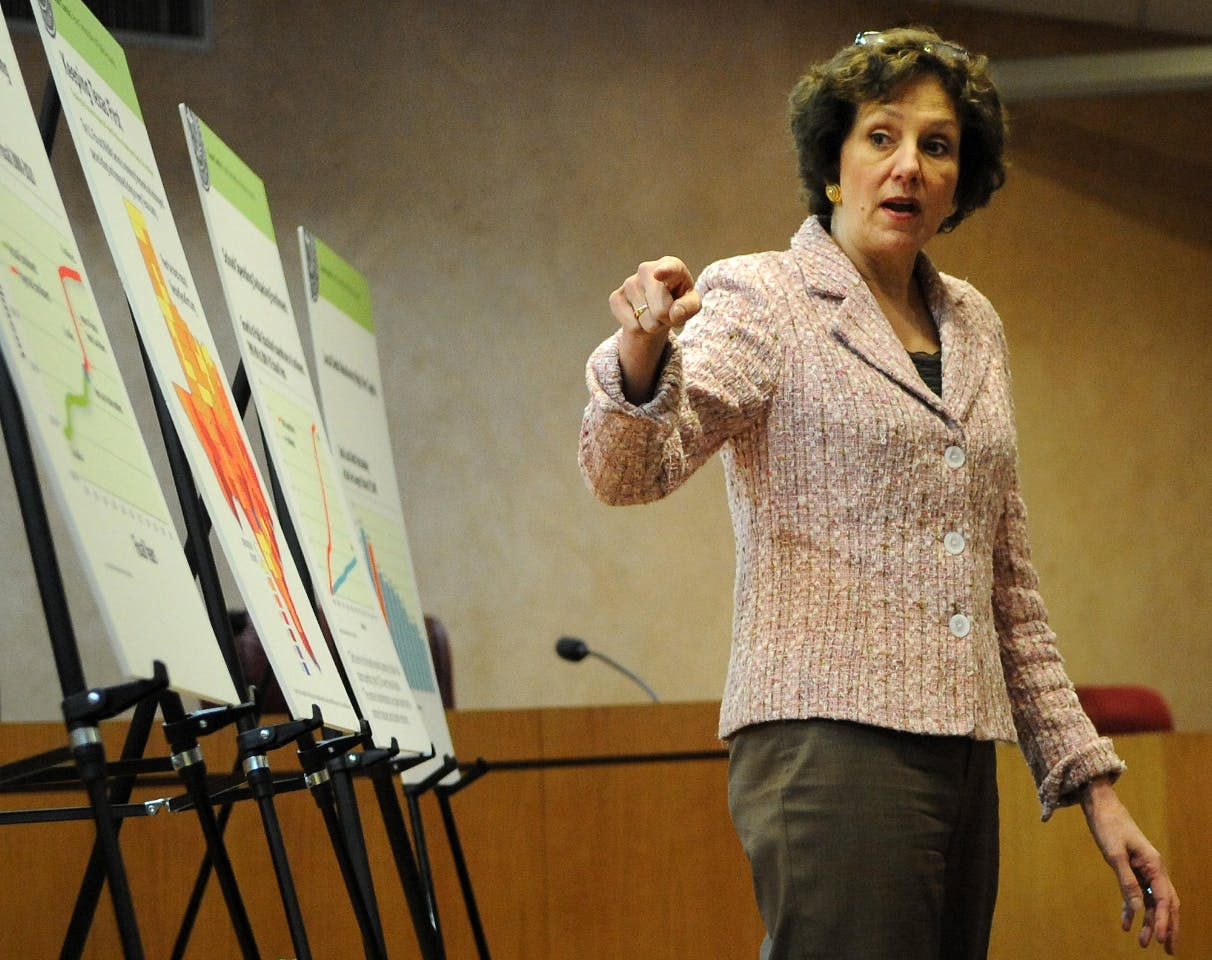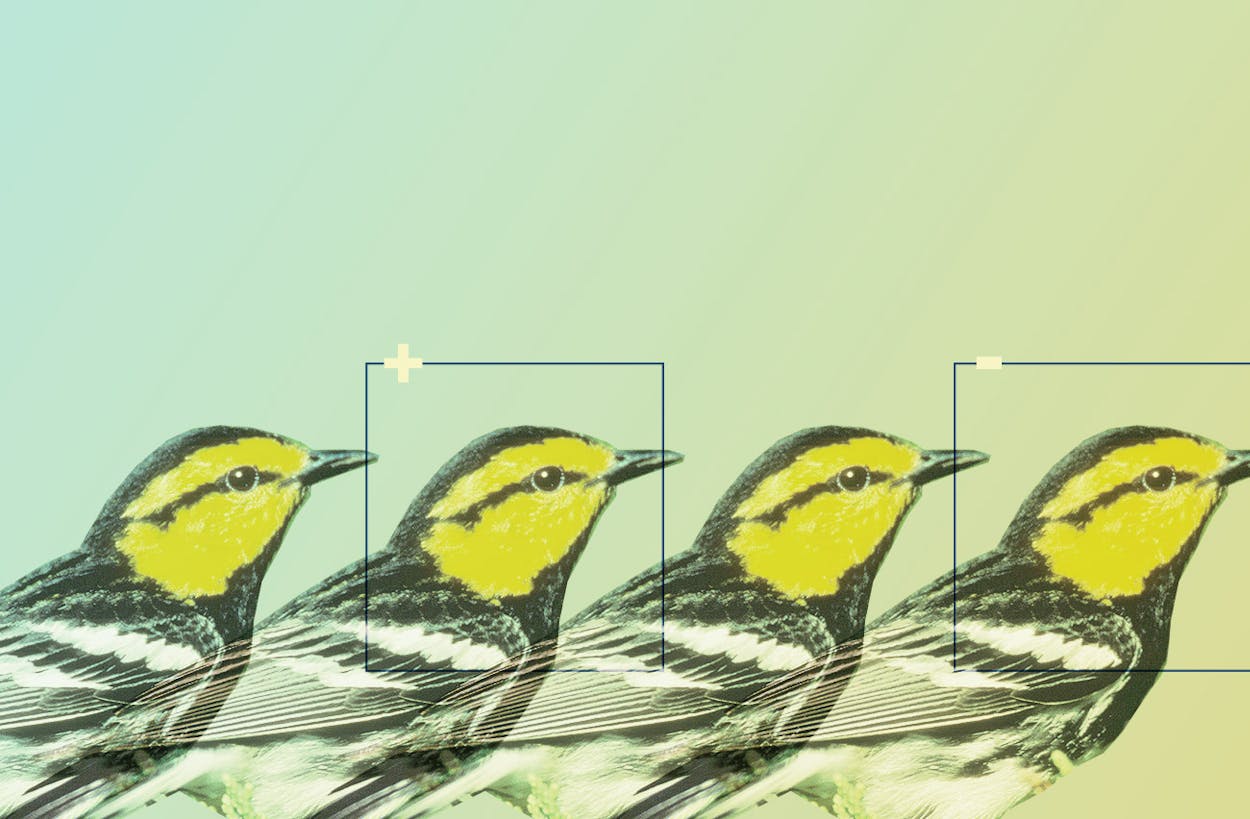While the national news media has been fixated on President Donald Trump’s Russian connections, failures on tax and health care revisions, and the lack of his promised border wall, his administration has been building a U.S. Department of Interior team to effectively dismantle the Endangered Species Act. Trump’s latest addition is the appointment of former Texas Comptroller Susan Combs as assistant secretary of interior for policy, management, and budget.
A Vassar College graduate from a ranching family in Brewster County, Combs is no stranger to the critter versus people wars. Combs has been vocal in her opposition to how the Endangered Species Act, signed into law by President Nixon in 1973, has been implemented. Environmentalists have used the law not only to protect individual species of plants and animals for their sake as well as genetic diversity, but also to protect natural areas from development and industrial activity. Fundamentally, for Combs, this has meant the federal government puts animals ahead of property owner rights. The U.S. Fish and Wildlife Services, which administers the act, is an agency within the Department of Interior.
“Susan Combs’ appointment as assistant secretary of the Interior is not welcome news for conservation,” said Joan Marshall, executive director of the Travis Audubon Society, in an email. “Combs and the Trump administration aim to roll back environmental protections in the name of economic progress. … If we manage nature for short-sighted, short-term gains, nothing will be left for future generations.”

As a state representative in the 1990s, Combs passed a law designed to restrict the state from sharing data with the Fish and Wildlife Service, data that might be used to designate species as threatened or endangered. She also passed a law allowing landowners to sue if state environmental actions devalued their property by more than 25 percent. During Combs’ tenure as comptroller, state protections of endangered species were moved from the Texas Department of Parks and Wildlife to her agency, which manages state fiscal and tax matters. She once referred to potential endangered species listings as “incoming scud missiles” on the state economy.
Combs successfully kept federal officials from putting the rare dune sagebrush lizard on the endangered species list by working with the oil and gas industry to create the Texas Habitat Conservation Foundation to mitigate drilling activities in the area where the lizard lives. The current comptroller, Glenn Hegar, fired the foundation for doing nothing to mitigate damage to the lizard habitat.
In 2015 Combs worked with Land Commissioner George P. Bush and the Texas Public Policy Foundation to press the Fish and Wildlife Service to remove the Golden-cheeked Warbler from the endangered species list. Having the bird on the list limits ranchers’ ability to clear brush, but it also restricts commercial and residential real estate development in the Austin to San Antonio corridor. The Fish and Wildlife Service turned down the Combs petition. Since then, Bush and the policy foundation have sued the federal agency in an effort to get the bird taken off the endangered species list.
“Susan has always been a champion of property rights and restraints on the Endangered Species Act, said Robert Henneke, general counsel of the public policy foundation. But he demurred when I asked whether he thought Combs would play an inside role in pressing for the delisting of the warbler. “I don’t expect she’ll have any involvement in our lawsuit in her new role.”
Combs had argued that a study by Texas A&M University scientists found that the warbler habitat was widespread and that the number of birds was nineteen times greater than when the bird was first studied in 1990. The problem, according to Combs, is that the act was designed to protect species until the population recovered to a sustainable level, but she said once a species goes on the list it rarely comes off.
Combs contended the warbler was back to a sustainable population. “This is wonderful news and should be celebrated, but don’t expect much, because it turns out the listing and delisting process is less about actual animals and more about agendas,” Combs wrote in a 2015 op-ed. Earlier, in the Washington Times, Combs urged the regulatory power to protect endangered and threatened species should be moved from the feds to state and local government. “Solutions that involve the community can succeed where top-down bureaucratic edicts fail,” Combs wrote. “It’s time to work together to craft solutions we can all live with.”
The wildlife service rejected Combs petition as lacking commercial or scientific evidence that the warbler was ready to be removed from the endangered list. “The golden-cheeked warbler has not been recovered, and due to ongoing, widespread destruction of its habitat, the species continues to be in danger of extinction throughout its range,” the agency reported in the Federal Register.
The federal wildlife agency is not always opposed to delisting species, though. In 2011, the agency delisted the Concho water snake that lives in the upper Colorado and Concho rivers. The agency reported the snakes’ recovery as a “dynamic process.”
Combs is the third interior official appointed by Trump with a history of wanting less regulation of endangered and threatened species. Trump named U.S. Representative Ryan Zinke, a Montana Republican, as interior secretary, which prompted more than 165 environmental and wildlife protection groups to sign a joint letter opposing his confirmation. Since taking office, Zinke has signed orders removing the Yellowstone Grizzly Bear and the Florida manatee from the endangered species list. Zinke also signed an order to create additional cooperation between state and federal governments to protect the sage-grouse. According to an agency news release, Zinke said, “While the federal government has a responsibility under the Endangered Species Act to responsibly manage wildlife, destroying local communities and levying onerous regulations on the public lands that they rely on is no way to be a good neighbor.”
Trump’s first pick for a spot as one of Zinke’s deputies was Washington lobbyist David Bernhardt, whom the Los Angeles Times described as “laden with conflicts of interest.” The newspaper reported that Bernhardt’s law firm represented Cadiz Inc. in its effort to win approval to pump Mojave Desert groundwater and send it to Southern California cities. The Times reported that Bernhardt also has repeatedly sued the Department of Interior for clients and fought protections for California salmon. Newsweek reported that as an Interior Department lawyer under President George W. Bush, Bernhardt authored legal opinions to weaken protections for endangered species.
In a news release, Zinke praised Trump’s appointment of Combs. “Susan is highly qualified and will be a huge asset as we work to make government more efficient and more accountable to the people.” In her role, Combs will oversee policy development as well as the agency’s fiscal affairs. Though he did not mention the endangered species act, Texas’ junior senator, Ted Cruz, said Combs “understands, like most Texans, that the federal government isn’t the answer to every challenge. She also understands the power of freedom, and the benefit of collaboration and working with state and local interests.”
But Luke Metzger of Environment Texas said, “Given [Combs’] track record as comptroller, and after leaving office, with attacking the Endangered Species Act and opposing new listings, it definitely seems like the administration is putting the fox in charge of the hen house.”
Amal Ahmed contributed to this report.






